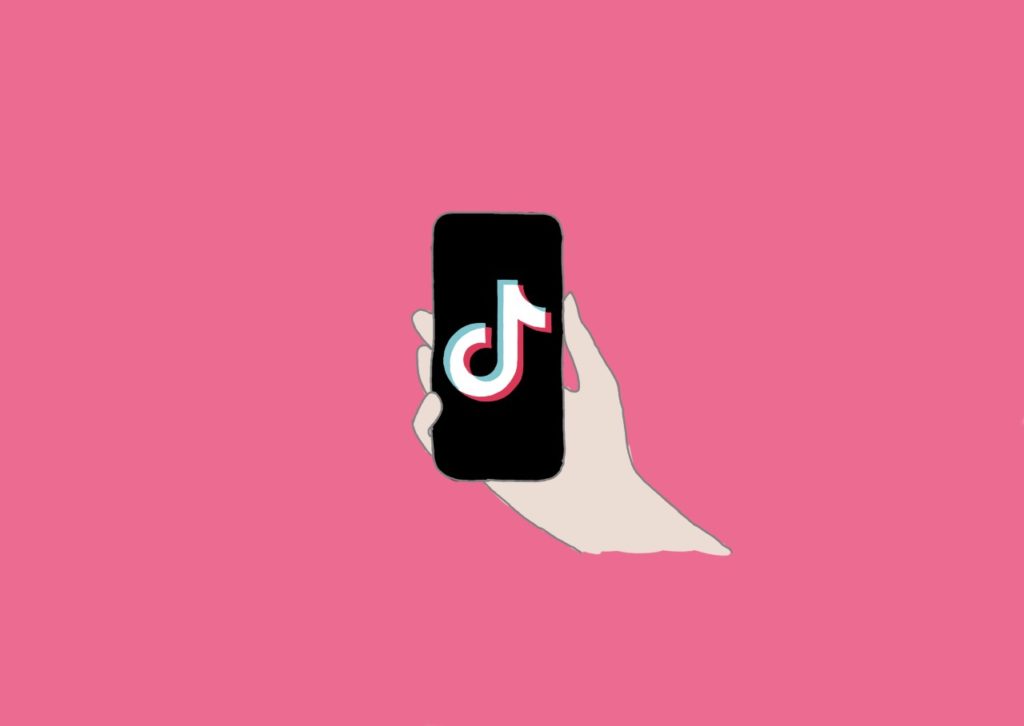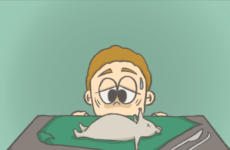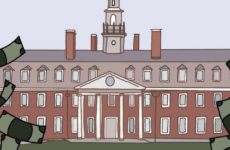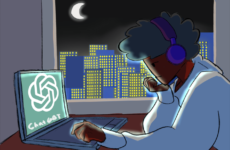I downloaded TikTok for the same reasons everyone else did: I thought it would be funny, and I was bored. But, just like everyone else, I found myself using the app much more than I had intended to.
I admit that these hours were not completely wasted. Through TikTok, I rediscovered my passion for roller skating, found cooking recipes, became more comfortable with my Indian culture, and even met a friend whom I still talk to sometimes. But, as time went on, I discovered more and more downfalls to the app, and a couple of weeks ago, I deleted it. Since then, I’ve felt so much better.
For one, I was spending way too much time on TikTok. The app structure is addicting: each video is 15 seconds to one minute long, just the right amount of time to capture viewers’ attention. If you get bored, fresh, bite-sized entertainment is one swipe away. Because every video is so short, it’s easy to fall down the TikTok rabbit-hole. Often, I found myself mindlessly scrolling for hours, completely absorbed in the content no matter how mediocre it was. My weekly Screen Time messages from Apple were, shall we say, embarrassing. When I became bored of watching a show on Netflix, I would open TikTok — that’s when I realized how grossly my attention span had been warped. Since deleting the app, I’ve noticed that I am more focused and present.
Because of their short nature, TikToks allow viewers to catch glimpses of other people’s lives but neglect to portray reality. Those short, romanticized moments affected me deeply. I found myself jealous of rich content creators whose glamorous makeup and symmetrical faces lure millions of views.
TikTok has derived qualities from the 2014 Tumblr era, notorious for spurring body image struggles and inciting eating disorders. While there are several creators working to change this culture (shoutout to Sienna Mae Gomez, who posts body-positive content and invites her followers to eat with her), the issue remains. Due to some physical health problems, I’ve recently been struggling with my body image, and I found my self-image worsening with the more time I spent on TikTok. Deleting the app has helped me begin to feel better about my body.

Graphic by Yuko Tanaka/The Choate News
Another major problem with TikTok, I’ve found, is that you never know what you’re going to see next when you swipe up on your screen — whether it will be an inspiring Sienna Mae Gomez video or something potentially triggering. Although there’s been increased advocacy for including trigger warnings in TikToks, it’s up to the creator to decide if and how they include one. Besides, reporting TikToks for inappropriate content rarely results in any real change. After seeing far too many stories about sexual assault and domestic abuse that I wasn’t prepared to hear about, I realized that I could find the content I was looking for on other social media platforms. So far, on platforms like Instagram, I’ve been able to better control what I’m consuming.
Likewise, the app has a hugely toxic community centered around trauma and mental illness. While some people may find validation in shared experiences, feel liberated after telling their stories, or discover support from an online community, there’s a line between using TikTok to cope in a healthy manner and exploiting trauma for views. Unfortunately, the latter is all too prevalent. I’ve seen creators put on a big, lip-glossed smile as they describe their experiences and the unhealthy ways they’ve dealt with them. When influencers neglect to mention that their coping mechanisms aren’t normal and that there are resources if you are going through something similar, young, impressionable viewers are left with a skewed understanding of mental illness and how they should deal with it. TikTok isn’t therapy, but my “For You” page was filled up with people who use the app as counseling — for my own mental health, I needed a break from that.
Don’t get me wrong, TikTok has done several good things. Our generation has united on TikTok in a unique and powerful way — through the app, we’ve made national headlines for our political engagement. However, since deleting the app, I haven’t missed it. I’m still able to enjoy good entertainment on other platforms, and I’m definitely spending a lot less time on my phone. I’ve been working on feeling better about myself: I can control what I’m seeing, and I no longer feel like a stranger’s therapist. Not everyone should delete the app expecting immediate life improvements. But, by taking the step to regain control over my time and my mind, I’ve found a happier, healthier me.




